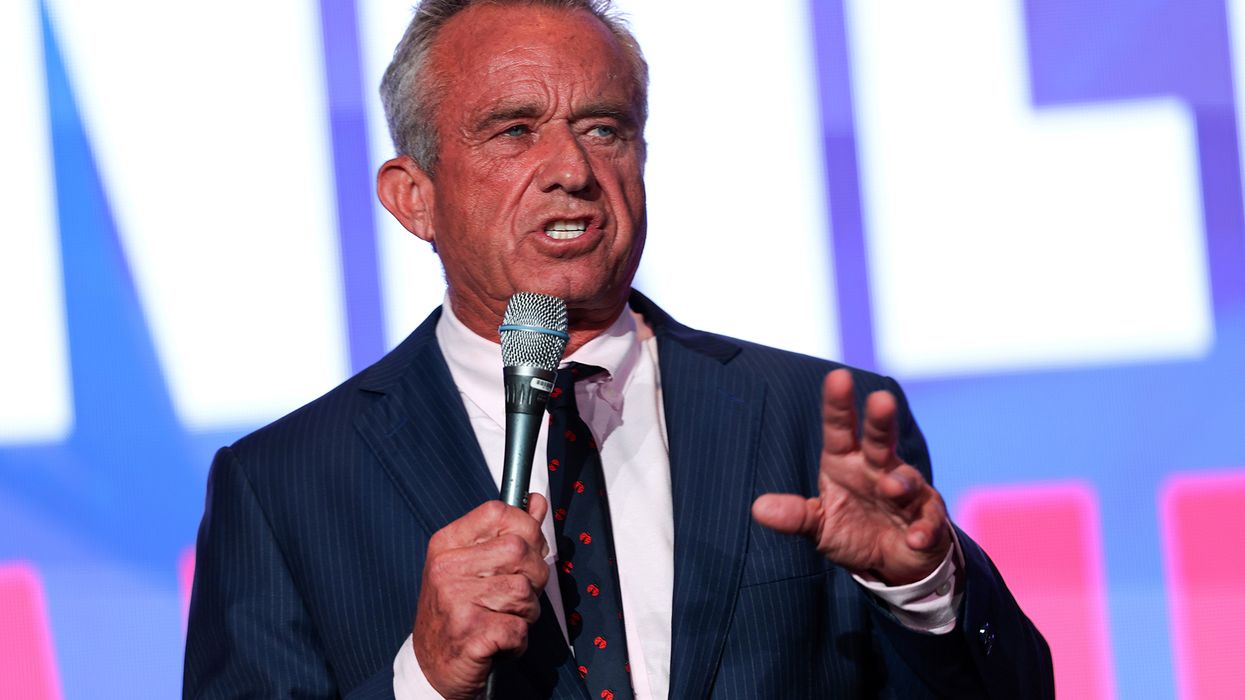In North Carolina,“unaffiliated” voters outnumber registered Democrats who, in turn, outnumber registered Republicans — yet Republicans hold not just a slim majority, but a veto-proof one in both chambers of the state’s General Assembly. That veto-proof majority is what allowed Republicans to pass an abortion ban last year that 45 percent of North Carolina voters oppose and only 23 percent support. How is that possible? And why is it the case that Republicans have been able to wield such power, not just in North Carolina, but in states around the country for years? You have to go back almost a decade and a half to get the answer.
Republicans had a good year in 2010: The GOP won control of 20 state legislative chambers, just in time for the once-a-decade redistricting process that gave lawmakers the chance to draw their own exceptionally favorable legislative maps, locking majorities in place for years to come. It was all part of a plan known as the Redistricting Majority Project, or REDMAP. Deeply gerrymandered maps meant legislators didn’t have to reach across the aisle to build coalitions, or moderate their positions to appeal to independents and swing voters. To stay in power, all they had to do is perform fan service for the far-right fringe of their party.
That election cycle, 14 years ago, is a primary reason why GOP lawmakers today still feel empowered to pass abortion bans, even in states where majorities of voters believe the practice should be legal in most circumstances. It’s the reason why gun safety measures supported by overwhelming majorities of voters repeatedly fail to become law, and why broadly popular initiatives like Medicaid expansion still haven’t passed in many areas. And it is a dynamic fueled by some of America’s most recognizable brands — companies that have donated tens of millions of dollars to the organization behind REDMAP, and the group most responsible for engineering minority rule in this country: the Republican State Legislative Committee.
According to a new report from the Center for Political Accountability, which tracks corporate political spending, the RSLC has accepted more than $188 million from publicly-traded companies and their lobbying groups since 2010 — a sum that represents more than half of the $340 million total raised by the group during this time. The amount the corporations gave to the Republican committee absolutely dwarfed the sum they gave to its Democratic counterpart, the Democratic Legislative Campaign Committee, which raised just $52 million from corporations and lobbying groups over the same period. The DLCC’s entire fundraising haul over the last 14 years — $185 million — doesn’t match what corporations alone gave to Republicans in that time. (The Republican State Legislative Committee did not respond to a request for comment.)
CPA’s report, shared exclusively with Rolling Stone, specifically examines donations from corporate treasury funds. Unlike political action committee donations, which are subject to strict contribution limits, companies can contribute unlimited amounts from their treasury funds — either directly or via third-party lobbying groups — to tax-exempt 527 political committees like the RSLC, the Republican Governors Association, and the Republican Attorneys General Association. The money accepted by the RSLC over the last decade and a half comes from some of the most recognizable brands in America, such as Comcast ($2.1 million), Walmart ($1.8 million), Pfizer ($1.8 million), AT&T ($1.6 million), ExxonMobil ($1.5 million), and Coca-Cola ($589,000), among others.
Republicans’ corporate benefactors, CPA asserts, have “supported gerrymandering efforts and restrictions on voting rights that have enabled state legislatures to enact unpopular policies,” like bans on abortion, while thwarting popular priorities like Medicaid expansion, gun safety legislation, and legislation to protect and expand voting rights. It notes that “state legislatures have even threatened to subvert presidential elections — which, if acted upon, would profoundly destabilize the rule of law in America.”
Gerrymandering is not a new phenomenon, but there is a difference between gerrymandering of yore and the legacy of REDMAP, says CPA’s research director, Jeanne Hanna. “The status quo among some Republicans in some state legislatures is not to win an election, but to win in a way that allows them to secure power [for years] regardless of what the voters want to have happen. That has really stark, long-term consequences.”
Bruce Freed, president of CPA, puts it even more bluntly: “It’s destructive to democracy.”
The irony is that the leaders of many of the companies that have funded and continue to fund the RSLC have, as the report highlights, made grand declarations about their commitments to democracy.
The largest donor to the RSLC since 2010 is the tobacco giant Altria, whose portfolio includes Marlboro, Skoal, and the vape company NJOY. Altria gave $6.9 million to the committee between January 2010 and June 2023. Altria declares that “voting is a foundational democratic process and should be a non-partisan issue. All eligible individuals should have their voices heard at the ballot box.” (Similar sentiments, the report notes, have been espoused by executives at AT&T, Citigroup, Comcast, Chevron, and Eli Lilly — all major donors to RSLC over the last 14 years.)
Reynolds American, maker of Newport, Camel, and Pall Mall cigarettes, was also a major RSLC underwriter before it was acquired by another big donor, the British American Tobacco company. The two companies gave a combined $7.6 million over the last 14 years. Other multi-million dollar benefactors include Elevance, the health insurance company formerly known as Anthem, which gave to the tune of $5.7 million, and the oil and gas company Devon Energy, which donated $2.7 million.
Almost none of the companies that donated to the RSLC responded to inquiries from Rolling Stone about whether they supported the policy goals their political contributions have enabled, or whether they would continue to donate to the RSLC going forward.
Pfizer, the only corporation to offer a response, said in a statement that the company engages “with legislative organizations on both sides of the aisle all with the purpose of advancing policies that support biopharmaceutical innovation and patient access to medicines and vaccines. In no way does our support translate into an endorsement of an organization’s position on any issue outside of this core mission.”
Corporations often make this argument, Freed says, but it is hard to ignore the enormous difference in the amounts of money the RSLC has accepted from corporations compared with the DLCC. “The amount that these [Republican] groups get from public companies and trade associations pales in comparison to the amount of money that goes to the Democratic counterparts,” he says.
In many cases, Freed says, “Companies are not paying attention to where the money ends up. They are giving to these groups [like the RSLC] to get access; they’re giving to these groups because it creates a favorable political climate for them. But… they have not been paying attention to the political consequences” — the consequences to the general public, or to their business interests.
Such contributions, Freed points out, pose a risk to businesses both in terms of consumer reaction and employee morale. A number of corporations that bankrolled the RSLC as it worked to install the legislative majorities that have passed unpopular abortion bans, were also the first companies to come out, in the wake of the Supreme Court’s decision ending the federal right to abortion, and promise travel benefits for employees who might need to leave their states in order to obtain an abortion.
Those companies include Citigroup (which gave $1.6 million to the RSLC), Microsoft ($222,000), and Amazon ($292,000). None responded to an inquiry about whether they would donate to the RSLC going forward.
“We know from our conversations with companies that they’re concerned about risk management, and there’s a recognition by companies that political spending poses risks on many different levels,” Freed says. But, he warns, “They’re not looking more broadly, and I would say three-dimensionally, at the impact of their spending.”
















